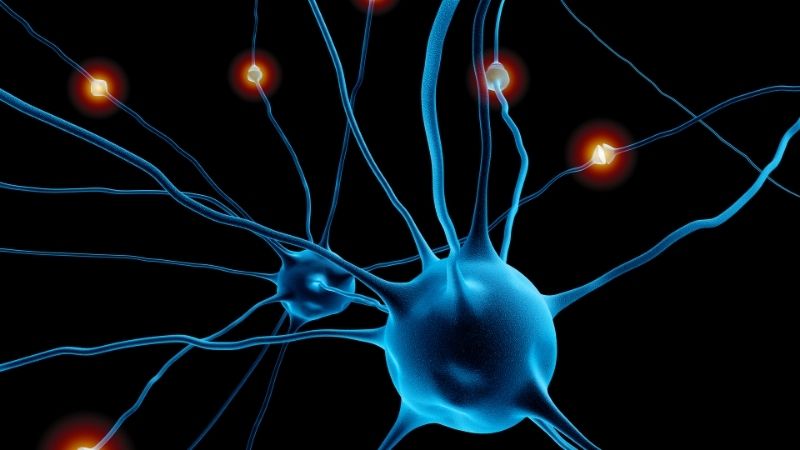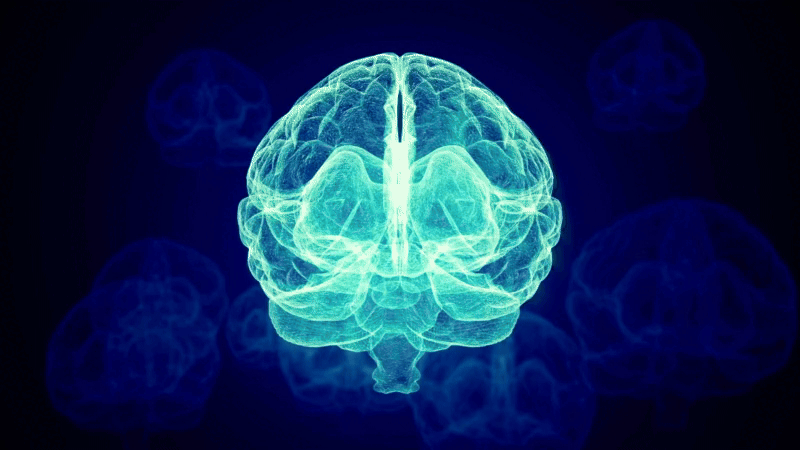READ TIME: 9m
DR JOHN DEMARTINI - Updated 4 months ago
I often speak about how there are three things you can control in your life: your PERCEPTIONS, DECISIONS and ACTIONS.
When you learn to govern your perceptions, make decisions that are congruent with your highest priorities, and then take actions based on those decisions, you begin the journey of mastering your mind and creating a purposeful, meaningful life.
What distinguishes us as human beings from other species is our capacity to govern our mind and not let the outside world run us.
No matter what you experience in your life, you can change your perception of it
John Milton once said that you can make a heaven out of a hell or a hell out of a heaven by asking certain questions that make you cognizant and aware of information you may have been unconscious of. In that way, you’re able to change your attitude towards it.
William James, the co-founder of modern psychology, once said that the greatest discovery of his generation is that human beings can alter their lives by altering their perceptions and attitudes of mind.
I've been doing that for decades now in my signature two-day program, the Breakthrough Experience – teaching people how to take situations in their life that they think are either terrible or terrific and transforming their perceptions so that they no longer distract or run their life.
How your perceptions shape your reality
Reality is that which is realized through your senses, and each of your senses involves your sensory receptors. Your sensory receptors take stimuli from your external environment and transduce them into what are called nerve action potentials. These action potentials enter the spinal cord or brainstem and synapse with other nerves that ascend into the thalamus or other brain regions, eventually reaching the cortex so that you become conscious of the stimulus.
Along the way, numerous neurons access and influence that pathway. As a result, what you RECEIVE through your senses and what you BECOME CONSCIOUS OF in your cortex are not always the same. In fact, they rarely are, because of the associations you make with the stimulus, which is what we call perception.

In other words, perception is a combination of the reception of the stimuli and all the previous or anticipated associations that are now impacting them.
Anything in your past that you have experienced as highly charged or valent, either positively or negatively - is assigned by your amygdala to be stored in the hippocampus, as episodic memories. The information in the neurons associated with those memories influences the new incoming stimuli through your peripheral sensory receptors. So, what is actually out there, and what you realize of what is out there, are two different things, which is what some call your subjective experience.
There is some degree of subjective bias in how and what you filter in and out of the information you receive. So, your initial reception and your perception are not likely to be the same. The question is, is it highly subjectively biased or is it more objective? The more objective it is, the more it matches what is actually received. The more subjectively biased it is, the more it is distorted.
The link between your highest values and your perceptions
If you are familiar with my teachings, you may have heard me speak about VALUES. Every individual has a unique set of priorities - a hierarchy of values – things that are most to least important in their life.
When you are living congruently with your HIGHEST priority or highest value, your blood, glucose and oxygen flow into your forebrain or your medial prefrontal cortex, where you become more strategic, more objective, more reasonable, and less emotionally reactive. This is what we could call your SUPERCONSCIOUS MIND.
When your associations between incoming stimuli of your sensory receptors are aligned with your highest values, your perceptions tend to be more accurate and reflective of what is actually present.
When you attempt to temporarily live according to your LOWER values - for example, trying to live by someone else’s rules or sacrificing what’s important to you because you are infatuated with them – your blood, glucose, and oxygen shift to the amygdala and hippocampus, which we could call the SUBCONSCIOUS MIND. This is also when you’re likely to be in survival more than thrival mode.
An animal in survival mode is basically seeking prey and fearing the loss of prey, which would be starvation. Because it fears it may die, it accentuates the perception to make sure it has enough adrenaline released to capture the prey before it gets away and so it distorts it with a subjective interpretation.
The same happens if a predator is nearby – it has to get out of there quickly to avoid being eaten by the predator, so it subjectively distorts the information to try to escape and to run faster than the predator. In both cases, the perception becomes skewed to support either attack and consume, or fight or flight (escape).

Anytime your amygdala is activated and hijacks you, you’ll tend to distort, generalize, and filter the information received through your sensory receptors. This results in a perception that is partly distorted, and as a result, your responses to the world around you become less effective. This is something known as DISTRESS, because you’re seeking prey and avoiding a predator.
Anytime you try to create a one-sided world – seeking pleasure without pain, ease without difficulty, support without challenge - it is futile and often results in distress, because you're trying to avoid what is unavoidable and seek what is unattainable. On the other hand, when you’re living congruently with your highest priorities and functioning from the executive center of your brain, you’re more likely to see a balanced more objective equation. In other words, you’re more likely to see what is actually present in the stimulus instead of distorting it.
This is when your perception and resultant actions becomes more self-actualized. In fact, when you’re functioning from your executive centre or medial prefrontal cortex, often referred to as the seat of the self, you tend to become the most integrated, grounded, and objective. It’s also where you are most likely to perceive the world not as a fantasy or nightmare - but as it truly is – one with a balance or opposites.
This results in a more self-governed state. When you function from this reference space, you are less likely to emotionally react and instead act with presence and purpose in relationship to what is actually there. Your perception of reality becomes shaped by what you have superconsciously realized through your senses, rather than by emotionally subconsciously charged distortions.
If you carry a skewed, subjectively biased interpretation of reality, you’ll likely find yourself trapped in a disturbed and distorted perception of the world. But when you are able to see things more objectively - more balanced, without being emotionally charged - you can begin to perceive what is actually there.
All events are ultimately neutral until you project onto them your past experiences, associations, and emotional baggage, which can then polarize your perceptions.
If, as a child, you were told by a parent or grandparent to "be nice, not mean," "be kind, not cruel," or "be positive, not negative," then encountering someone who appears cruel, negative, or mean can create a predator response. You may tend to exaggerate how “bad” they are and develop a moral avoidance reflex because you’ve been conditioned to believe that you and others are meant to be one-sided. But, no human being is one-sided. That’s a façade you may strive to maintain, yet in reality, human beings have both sides.

If you’ve been taught to disown one half of yourself, then you’ll tend to see others through that same distorted lens. When someone reflects the traits you’ve been told are “good,” you may idolize them and perceive them to be a hero. When someone reflects the disowned or “unacceptable” traits, you’ll tend to see them as a villain or as a threat.
These subjective projections can skew your perceptions and prevent you from seeing others as they truly are.
For example, I’m not a kind individual, and I’m not a cruel individual. I’m an individual with a set of values. If I perceive that you support my values, I can be kind, and if I perceive that you challenge them, I can be mean. But those responses don’t define me – I’m not the temporary one-sided label. It’s wise to be mindful that when you interpret the world through a subjectively biased lens, you tend to distort, exaggerate, and label people with absolute language such as “He’s always rude,” “She’s always kind.” But when you’re in a more objective and neutral state, you’re more able to see people as they are – and love them for who they are.
Self-actualization can arise when your perceptions begin to match what’s actually there, as opposed to self-delusion, which occurs when you’re trapped in a valent, emotionally charged misinterpretation of reality.
It’s one of the reasons why I teach the Breakthrough Experience and introduce the Demartini Method - to help individuals like you become even more accountable for balancing your perceptions. When you dissolve these misinterpreted valent distortions and subjective reactions, you are more likely to become self-actualized, self-governed, and inspired by your life filled with love.
To Sum Up
- What you perceive as reality is that which is realized through your senses, and each of your senses is brought to your awareness through your sensory receptors.
- What you receive through your senses and what you become conscious of in your cortex are not always the same. In fact, they rarely are, because of the associations you make with the ascending stimulus, which is what we call perception.
- Perception is a combination of the reception of the stimulus and all the previous associations that are now impacting it.
- The more objective it is, the more it matches what is actually received. The more subjectively biased it is, the more it is distorted.
- When you are living congruently with your highest priority or highest value, your blood, glucose and oxygen flow into the forebrain in your medial prefrontal cortex, where you become more strategic, more objective, more reasonable, and less emotionally reactive.
- Anytime your amygdala is activated, you’ll tend to distort, generalize, and filter the information received through your sensory receptors.
- All events are ultimately neutral until you project onto them your past experiences, associations, and emotional baggage, which then can polarize your perceptions.
- If you’ve been taught to disown one half of yourself, then you’ll tend to see others through that same distorted lens.
- When you’re in a more objective and neutral state, you’re more able to see people as they are — not as good or bad, but as a more neutral whole.
You can either carry emotional baggage and live through distorted realities, becoming a victim of your history, or you can achieve balance, ask empowering questions, and become the masters of your destiny.
I would love to have you join me at my next online 2-day Breakthrough Experience so I can personally guide you through the process of dissolving emotional baggage, balancing your perceptions, and unlocking the clarity, purpose, and self-governance that already exist within you.
Are you ready for the NEXT STEP?
If you’re seriously committed to your own growth, if you’re ready to make a change now and you’d love some help doing so, then click on the LIVE chat button bottom right of your screen and chat to us now.
Alternatively, you can book a FREE Discovery call with a member of the Demartini Team.
Interested in the Breakthrough Experience seminar?
If you’re ready to go inwards and do the work that will clear your blockages, clarify your vision and balance your mind, then you’ve found the perfect place to start with Dr Demartini at the Breakthrough Experience.
In 2 days you’ll learn how to solve any issue you are facing and reset the course of your life for greater achievement and fulfillment.
Click HERE to find out more
Important Notice:
The content shared in this blog is for education and personal development. It is not intended to diagnose, treat, cure, or prevent any psychological or medical conditions. The information and processes shared are for general educational purposes only and should not be considered a substitute for professional mental-health or medical advice. If you are experiencing acute distress or ongoing clinical concerns, please consult a licensed health-care provider.
Read full disclaimer HERE









